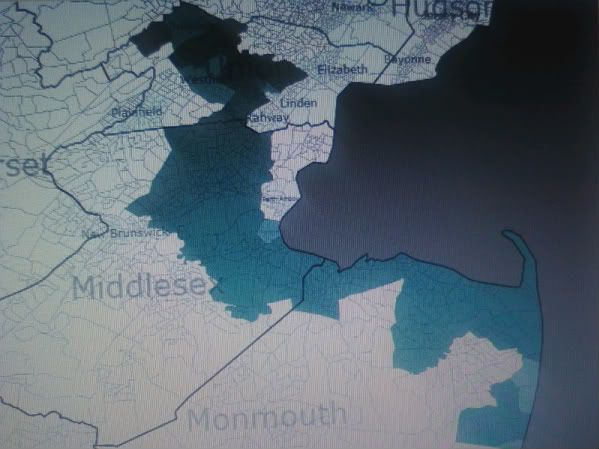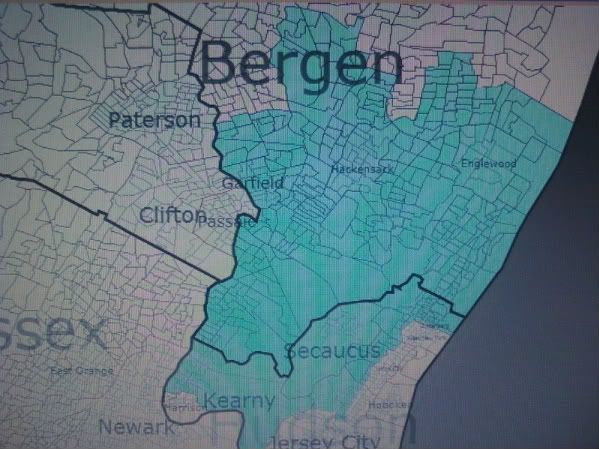• FL-Sen: Charlie Crist, who’s been trying to sound more conservative for the last few months, seems to have changed tack again, trying to sound, well, independent… and that’s leaving many speculating that it’s a prelude to, say, an independent bid for the Senate. Crist is now portraying himself as standing up for “the people” against the GOP legislature, as he just vetoed a leadership fund bill and is poised to veto a controversial bill that would abolish teacher tenure and tie teacher pay to test scores. Polling has shown Crist in so-so shape in a three-way race, but it’s still a better bet than the GOP primary is for him at this point. Crist has until April 30 to decide whether to pull the trigger on an indie bid.
• LA-Sen: Bayou Buzz is saying that Republican incumbent David Vitter may still wind up with some conservative opposition in the Senate race, despite having scared off all the top-tier possible opponents. Former state Sen. (and 2006 Insurance Comm. loser) James Cain, who’s well-connected with the religious right, is “seriously considering” making the race. Cain says he’d prefer to run in the GOP primary, but is also considering running as a teabagger independent — which, if it splits the right-wing vote, could make things considerably more interesting for Dem Charlie Melancon.
• UT-Sen: Freshman GOP Rep. Jason Chaffetz, whose name had briefly been associated with a possible primary challenge to Bob Bennett, still doesn’t think much of Bennett’s chances at the state convention, even though Bennett faces lower-caliber opposition than Chaffetz. Chaffetz drew some parallels to the same dynamic that helped him beat long-time Rep. Chris Cannon in 2008, and Cannon concurs, saying that the same movement has evolved since then.
• FL-Gov: I hinted at this yesterday, but these numbers are worth elaborating: Republican AG Bill McCollum raised $1.4 million last quarter, compared with $1.1 for Democratic CFO Alex Sink, suggesting that the same momentum change that we’ve seen in polls lately may be playing out in fundraising too. Sink still leads in receipts over the election cycle, and has the edge in cash on hand (she has $5 million).
• GA-Gov: One other gubernatorial race where the Democratic candidate is fundraising like mad is Georgia; ex-Gov. Roy Barnes raised over $900K this quarter and is sitting on $2.84 million CoH. That puts him well ahead of the top Republican, Insurance Comm. John Oxendine, who reports $2 million CoH but only raised $75K during the last quarter. Republican ex-SoS Karen Handel raised $400K in Q1, but is sitting on nearly $600K.
• PA-Gov: Little-known state Sen. Anthony Williams raised some eyebrows with his big cash haul last quarter ($1.7 million for the quarter), but it’s a little less amazing now that it’s been revealed that much of that came from one huge contribution from a not-very-appealing source: $750K came from Democrats for Education Reform, who are a school-choice group. Another interesting co-inkee-dink: Williams’ campaign manager is, in his spare time, president of a Philly charter school.
• CT-05: Sam Caligiuri and Justin Bernier have gotten some wealthy company in the GOP primary in the 5th, from businessman Mark Greenberg. He says he’s pledging $1 million of his own money for the race (although that may come in installments, as he currently reports $403K in his account).
• FL-08: You may recall our amazement the other week to find that there’s a Whig running in FL-25… well, apparently they’re proliferating all over Florida, as now there’s one running in FL-08 as well. CQ talks briefly with Steve Gerritzen, who plans to go all William Henry Harrison on Alan Grayson’s ass.
• MI-01: Sounds like Bart Stupak was speaking mostly out of frustration when he said he was considering retirement a few days ago, or maybe he got the attention he was seeking in response. In today’s Detroit Free Press, he’s sounding much likelier to run, saying he’s “not ready to quit yet,” and that he has “every intention” of running again. He still has to have his biannual sitdown with his family about whether to do it or not, though.
• NH-02: Sorry, Charlie… you’re going to need more money than that. GOP Ex-Rep. Charlie Bass reported $155K, with $262K CoH, in his quest to reclaim his old seat. Dem Katrina Swett also reported yesterday, with $325K last quarter and over $1 million CoH (mostly leftover from her Senate bid that never happened). Bass also lags Ann McLane Kuster, who reported $285K last quarter.
• PA-07: State Rep. Bryan Lentz seemed to have a pretty easy path to the nomination in the 7th, and that path got even easier, with the dropout of environmental lawyer Gail Conner from the Dem field. That leaves only political consultant Teresa Touey in the way, and Lentz is challenging her signatures.
• SC-01: Carroll Campbell III got a big endorsement in his bid for the GOP nomination to replace retiring Rep. Henry Brown, from ex-Gov. David Beasley. That makes two ex-Govs backing him (as it would be pretty awkward if he didn’t have his dad’s endorsement). (UPDATE: Ooops, my apologies. The elder Campbell died several years ago.)
• CO-AG: This is a little down in the weeds, but it may be the first big test of whether joining the frivolous Republican AG lawsuit against the feds over HCR is a net positive or negative. Republican AG John Suthers just drew a top-tier challenge, from Democratic Boulder County DA Stan Garnett. Garnett was motivated to get in largely by Suthers’ participation in the lawsuit.
• NARAL: NARAL rolled out a bunch of endorsements for Democrats going on the offense in House races. Most interestingly, they waded into the LA-02 primary, endorsing state Rep. Cedric Richmond (who still faces fellow state Rep. Juan LaFonta; the winner faces Joe Cao in November). They also supported Dan Seals (IL-10), Paula Brooks (OH-12), Suzan DelBene (WA-08), and Steve Pougnet (CA-45).
• Redistricting: If you like big charts with lots of population numbers and vote percentages (and if you’re at SSP, you probably do), here’s a post for you. Josh Goodman looks at California population changes on a county-by-county level and finds heaviest growth in Republican-leaning counties, but the growth is mostly Hispanic. Here’s the nice succinct conclusion, which I think applies everywhere and not just California:
The most rapid growth is in Republican places, but, in many cases, it’s among people who are likely to be Democratic voters. What that might mean is that this round of redistricting will produce short-term Republican gains, but, over the long haul, these Republican places won’t be Republican anymore.
• WATN?: Mahoney, Foley, and Spitzer, oh my! All three losers are in the news today as they publicly ruminate about comebacks. Ex-Rep. Tim Mahoney says people have been urging him to run for his old seat, which he lost to Republican Tom Rooney (and with Chris Craft out, hell, he may actually be their best option). Meanwhile, the guy Mahoney beat, Tom Mark Foley, has been gauging interest for his own comeback, running in 2011 for West Palm Beach mayor. Rounding out the trifecta of sex scandal survivors, Eliot Spitzer is still keeping his name in front of the press, saying that Kirsten Gillibrand presents an appealing target but sounding more plausibly interested in a run for state Comptroller.











